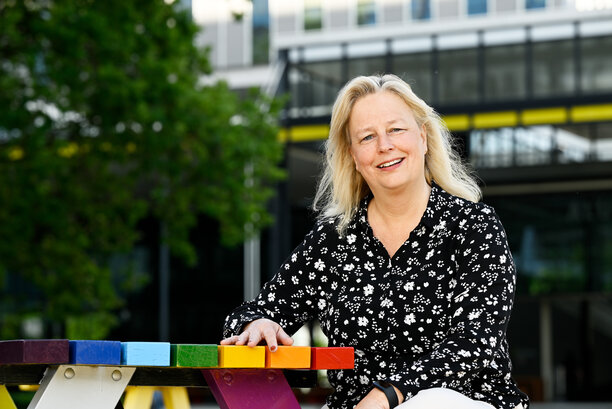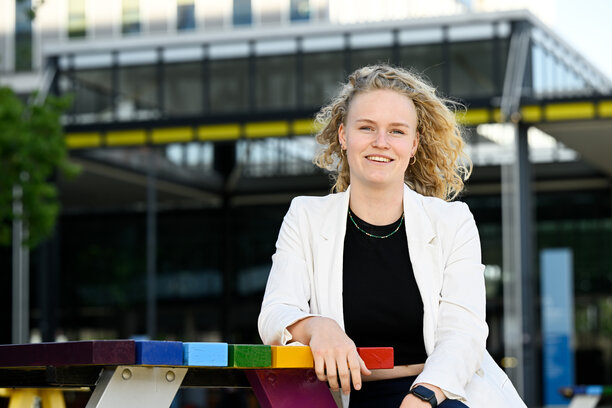‘I want to pave the way for other women, I need to’
Women at the university down through the generations: alumna and top executive Manuella Wilts and her daughter, TU/e student Ymke Verspui, speak about gender balance in industry and at the university.
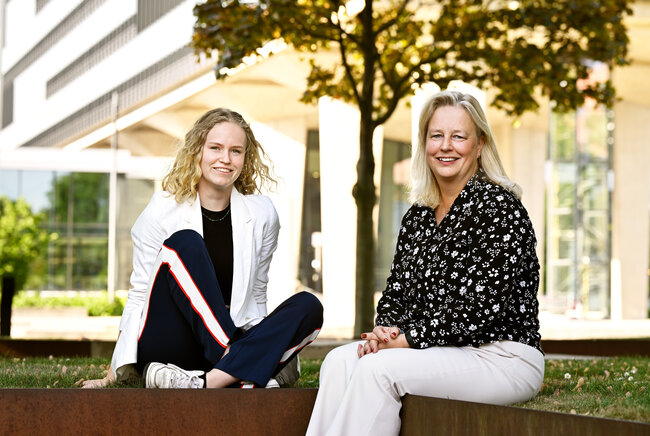
Joining TU/e's Industrial Engineering and Management Sciences program in 1987, Manuella Wilts took the Pré-Intro course. Now no longer running, this course was for a particular group of students then very much in the minority: women. Over thirty years later her daughter Ymke Verspui is studying Industrial Design, a program where women account for over half the student cohort. Manuella Wilts believes that even in 2022 it is still important to pave the way for other women, and she is keen to help do so at TU/e.
TU/e International Women’s Day
This year’s theme for International Women’s Day is “Pushing the limits for a livable world". How can we bring about a future without climate change, ecological breakdown, pandemics, scarcity, war, discrimination and other threats to a humane and equal living society?
Join us for an inspiring event this Wednesday March 8, with talks and interviews with female TU/e students, staff and alumnae who are working towards a better world.
Three months ago Manuella Wilts announced on LinkedIn that she planned to change her first name to Peter. Not because this senior director of operations at the Janssen Pharmaceutical Companies of Johnson & Johnson was about to undergo a sex change, but because she wanted to make a point on a matter close to her heart. Women are hugely underrepresented in powerful positions and have less influence than men, and this must change, she believes. By way of illustration, and hence her decision, in the Netherlands there are more CEOs named Peter than there are women CEOs.
“I have received an incredible number of reactions to this post, all of them positive. I see it as my responsibility to pave the way for other women. It's something I need to do. As the mother of three daughters and as a woman.” “And it is working,” responds her daughter Ymke Verspui, smiling, “her message is reaching me.” To which Manuella replies, “But it's also prompted plenty of discussion between us.”
After all, her three daughters do sometimes feel this isn't something she should be getting so wound up about. “They sigh and say, ‘She's off again, making more remarks about women,’” says Manuella. “In these discussions I'm pretty fierce, because I believe that as a woman you have to stand up for yourself against people who don't have your best interests at heart. Whereas you guys just say, ‘Don't make such a fuss, the world is different now.’”
“It also depends on the circles you move in,” says Ymke. “At school and among my friends, it's not something we need to talk about. Maybe it's different in industry, but I've never had the impression I've been put in my place because I'm a girl. The only thing that comes to mind is the amazement my friends show whenever I fix a flat tire on my bike.”
My daughters have been known to say ‘She's off again, making her remarks about women’
Top executive and alumna Manuella Wilts
Manuella: “Both my husband and I studied Industrial Engineering and Management Sciences, and together we have three daughters. We try to instill in them the notions that they need to have broad horizons, must make their own choices, and must follow their own star.”
Never enough
This mantra brought daughter Ymke to TU/e, like her mother. “I wanted to study design, but some programs aren't very down to earth. My parents advised me to take Industrial Design at TU/e; the combination of design and engineering means this program has real-world relevance,” explains Ymke. “And the number of women on the program, what's that like?” asks Manuella. “On my courses there are plenty of women, enough at any rate,” replies Ymke; at Industrial Design 53 percent of the students are women. “Enough, enough,” says Manuella, “there are never enough.”
In student team InMotion, the team Ymke belongs to, there are more men than women, she says. The team is developing a fully electric racing car capable of being recharged in the time it takes to fill up a petrol-driven car. “I'm working in a team that's mostly men. I don't know why there aren't more women in the team, but the fact that fewer women applied worked in my favor. Although I don't want to be selected just because I'm a woman.” Similarly, within team IGNITE, which designs light objects intended to build social cohesion, she often found herself in the company of men.
Getting a job because you're a woman, that's always tricky
Top executive and alumna Manuella Wilts
Affirmative action policy
The scarcity of women in Ymke's student teams past and present makes a nice segue to the Irène Curie Fellowship inaugurated by TU/e in 2019 with the aim of recruiting more talented women scientists. “Very brave and bold, but it's a shame it's needed,” says Manuella.
“I used to think that giving women positions as part of affirmative action was not the way to go. Selection committees say there aren't enough women, but there are. I'm observing the same thing at our company. If you want the best, you simply have to extend your search. But I have also seen that things are not moving quickly enough. This has prompted me to change my mind about the university's affirmative action policy; but getting a job because you're a woman, that's always a tricky issue.”
Ymke understands the debate that instituting a preferential scheme for women triggers, but believes the scheme is indeed valuable: “It gives women more assurance. If I'm doubting whether to go and study somewhere that has few women, then so are other women. When there are more women, it becomes normal. Once that's the case, I would think you could ditch the scheme.”
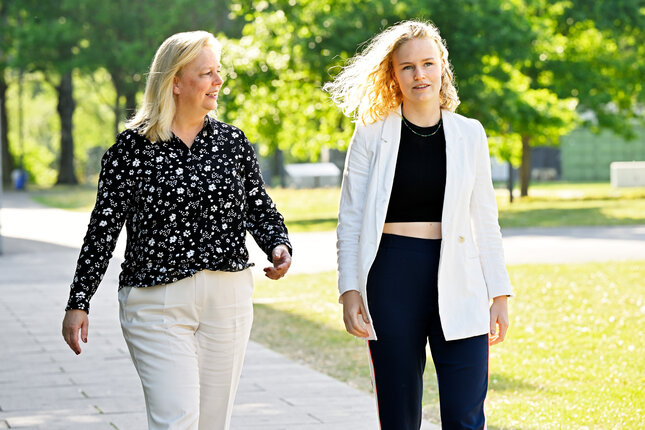
Different times
When Manuella came to TU/e to study, as a woman she was very much in the minority. “In my time there was still a Pré-Intro specially for women. That was great fun, spending two full days with all the women who had arrived to study at the university. We got to know each other across departmental boundaries. I had selected TU/e knowing there were going to be a lot of men, but that didn't stop me. I wanted to do the program.”
While a student, she joined the women's interyear club (dispuut) L’Attaque Attique. “We had a great time together, and I'm still in touch with past members. There are now so many women graduates that a wonderful, valuable network has been created, and in recent years I've been making good use of it. We had a meal out not so long ago, with members of various year groups. We talked about the position of women and I said I feel like a role model. A younger member said she looks up to me and other older members. But she herself is also a role model, even though she's younger,” says Manuella. Then, to her daughter: “Do you feel like a role model?”
From a young age I've been independent, trying to sort out my stuff myself.
Ymke Verspui, bachelor's student of Industrial Design
“No,” replies Ymke firmly. “Though I do admire what you have accomplished in your career; that's something I would like for myself. From you and Dad I've learned to first try and sort out my stuff myself. I was independent at a young age, like when I organized my own birthday party at the age of ten.” Recalling the event, Manuella adds, laughing, “But we had to carry out the plans.” Ymke: “I know what I want, and then I start finding out what steps I need to take to get there. If you want something and you invest time and energy in it, you'll achieve it.”
Role models
Her own mother was a role model for Manuella. “She was dismissed from her job when she was pregnant with her first child. She set up a children's playgroup, so that she could take us there and go back to work, part time. My mother was very enterprising and not always at home, but that didn't bother me. And I've not done badly, have I?” she says with a laugh. “Thanks to my mother I knew I could go out to work with peace of mind, even once we had three daughters.”
With her busy international job, Manuella was frequently asked how she managed everything at home. “‘You don't want to miss your children's first steps, do you?’ said a friend. For me, the first steps I see them make when I'm at home are their first steps.” She realizes that not everyone can think so flexibly: “This might be an option for you, but you have to really want it,” she stresses.
Exceptionally good boss
In her career with Johnson & Johnson, an American company working in the pharmaceutical and medical industry and in consumer products, Manuella has had many opportunities. “I was lucky that early on in my career I had a boss who said, ‘I believe in you. I'm going to assess you based on what you contribute, not the hours you work.’ That was good for me and that way of working taught me a lot.”
“My boss once asked me to take on a directorship in IT, but I didn't know the business units involved and wasn't sure I'd make a good job of it. Then he asked me if I wanted to help with the selection process. I did and all the candidates I saw were white men in their fifties. I thought ‘Is that my new boss? I can do a better job myself.’ I realized I did have the ability, that my boss had set me up; he was an exceptionally good boss.”
In her position as senior director of operations she pays special attention to the development of leadership, diversity and inclusivity, and these days she is herself a role model. “Because I rose quickly through the ranks, I have been a mentor to very many women. You share your own experience, how you have solved practical problems, like how you combine your family with a lot of traveling. What's gone well, what hasn't. But I also share my doubts. If you aren't honest about that, the mentee might make a decision that isn't right for them.”
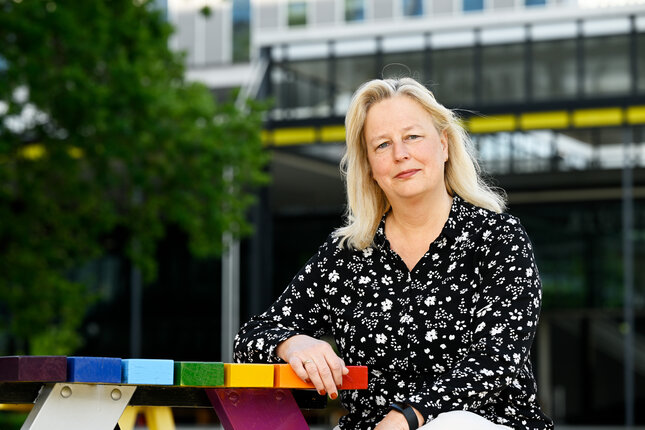
‘Mr. Wilts’
When it comes to gender equality, Manuella is inclined to speak her mind, but acknowledges that unpleasant situations often arise from subconscious prejudice. Often addressed as ‘Mr.’ Wilts, she may decide to let the mistake pass. “It's not always worth it. I make a tactical choice whether to respond. It depends on how important the situation is, if it's inconsequential I don't want to make a big deal out of it.”
When, some twenty years ago, she and her husband went along to choose her new lease car, and the salesman directed everything he said to her husband, she wouldn't stand for it. “I walked out, the car was for me, not for my husband.”
Not that she herself never slips up: “Once I was receiving an international group of visitors to our company, one women and all the rest men. Subconsciously, I thought, ‘Oh she must be the secretary’. She turned out to be the boss. So having prejudice without being aware of it is something that happens to me too. You have to stay alert to the possibility.”
University: use the power of your women alumni
Top executive and alumna Manuella Wilts
Manuella: “I'm nearing the end of my career and am looking to see what I can do for, can give back to the university. By coaching other women or as a hybrid lecturer. There are now a great many women graduates of TU/e, why don't you get them all together and see what they can do for you? I think you'd be amazed how many women are keen to make an effort on behalf of TU/e. I don't know how exactly you'd go about this, but currently the university isn't making any use at all of the power of its women alumni. It's an initiative I'd like to help with.”
More on our strategy
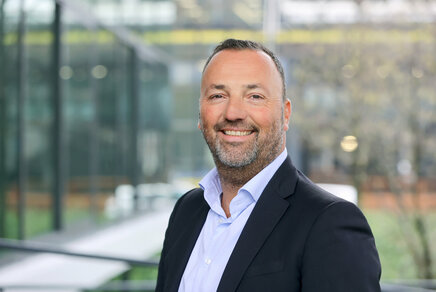

![[Translate to English:] [Translate to English:]](https://assets.w3.tue.nl/w/fileadmin/_processed_/c/f/csm_BvOF_2024_0319_AEV_license_TUe_Dirk_van_Meer_-_CORE_1__c976e259a5.jpg)
